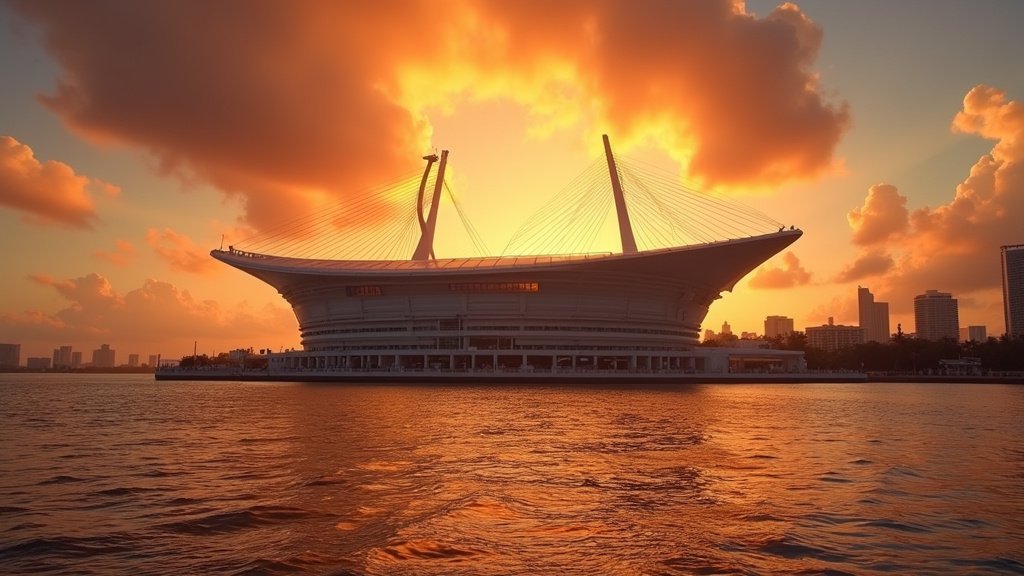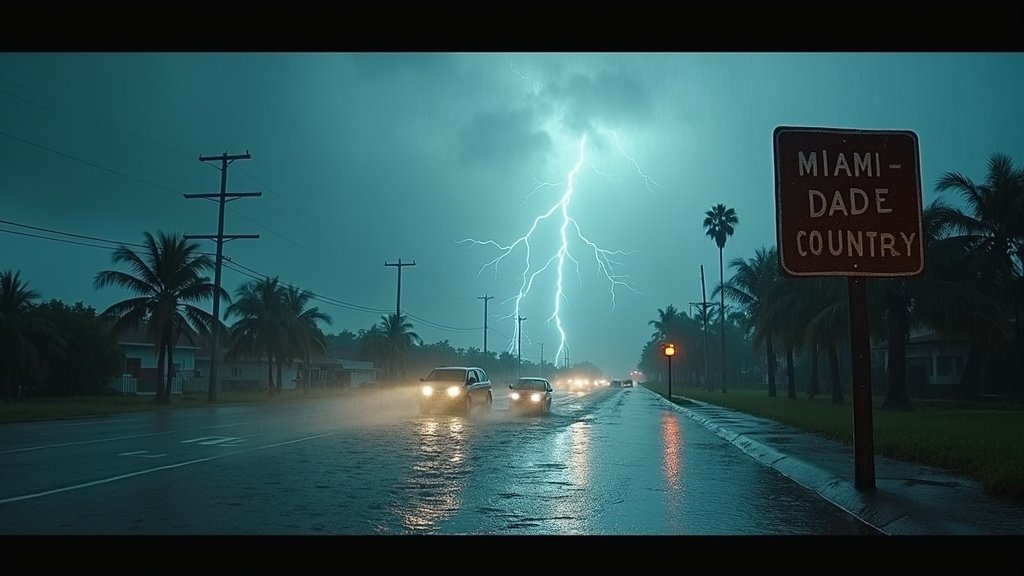The City of Miami is taking a significant step closer to breathing new life into the iconic, yet long-shuttered, Miami Marine Stadium. After years of planning, advocacy, and stalled initiatives, the city has officially selected Global Spectrum L.P. as the private operator tasked with managing and revitalizing the historic waterfront venue. This development paves the way for a crucial vote by the Miami City Commission on September 4, 2025, which could place a referendum on the upcoming November ballot, seeking voter approval for the proposed operating and management agreement. City Manager Art Noriega described the stadium as a “gem within the city of Miami,” expressing confidence in the plan to renovate the “incredible historic venue”.
A Storied Past and a Lingering Absence
The Miami Marine Stadium, a masterpiece of mid-century modern architecture designed by the then 28-year-old Cuban immigrant architect Hilario Candela, opened in 1963. Situated on Virginia Key, it was the first stadium purpose-built for powerboat racing in the United States. Its unique design, featuring a dramatic cantilevered concrete roof—the longest of its kind in the world at the time—and a seating bowl that extended over the water, offered spectacular views of the downtown Miami skyline and Biscayne Bay. Over the years, the stadium hosted a diverse array of events, from thrilling boat races and rowing regattas to concerts by legendary artists like Jimmy Buffett and Sammy Davis Jr., political rallies, and even religious services.
However, the stadium’s glory days were cut short in 1992 when it was closed by the City of Miami following Hurricane Andrew, which officials cited as the cause for declaring it unsafe. Despite subsequent insurance reports suggesting structural integrity, the venue remained shuttered, becoming a canvas for graffiti artists and a symbol of Miami’s potential unrealized. The architectural significance of the stadium has been widely recognized, earning it a place on the National Register of Historic Places in 2018 and designations by numerous preservation organizations, including the National Trust for Historic Preservation and Dade Heritage Trust.
Decades of Advocacy and Funding Hurdles
The path to the stadium’s revival has been long and arduous, marked by persistent advocacy from dedicated groups and a series of promising plans that ultimately stalled. Organizations such as Friends of Miami Marine Stadium (FMMS) and later Restore Miami Marine Stadium, often under the umbrella of Dade Heritage Trust, have championed the cause for years, raising public awareness and pushing for action.
Previous revitalization efforts have seen significant milestones, including a $45 million bond initiative approved by the city commission in 2016, which ultimately expired before bonds were issued. More recently, in October 2023, the commission approved $6 million in bonds for specific upgrades like a boat launch, trailer parking, and a mooring field, a significant reduction from earlier, more comprehensive proposals that included welcome centers and museum complexes. Funding for the full restoration, estimated to cost tens of millions of dollars, has consistently been a major challenge, with past bond measures failing to materialize and questions lingering about the ultimate financial commitment required for both restoration and ongoing operation.
Global Spectrum L.P. Steps In
The city’s latest strategic move involved issuing a public solicitation in January 2025 for a private operator to manage the historic venue. The selection of Global Spectrum L.P., a company with experience in managing venues, represents a critical step forward. The operator’s responsibilities are expected to include developing renovation plans, programming events, and ensuring the stadium’s long-term financial viability as a concert and performance center. The city aims to secure a deal that allows the venue to be managed professionally, mirroring successful models seen in other renowned entertainment spaces.
The Road to Voter Approval
The current momentum is driven by Mayor Francis Suarez, who has expressed a desire to secure the stadium’s future as a legacy project before his term concludes. The mayor has called for a special commission meeting on September 4, 2025, to approve the submission of a ballot question to Miami voters. This referendum is essential, as voter approval is required for the redevelopment deal to proceed. If the commission green-lights the ballot measure, and subsequently, voters approve the contract in November, the Miami Marine Stadium’s long-awaited transformation could finally begin in earnest. As City Manager Noriega noted, the goal is to make “Miami’s current affairs” shine through the restoration of this landmark.
A Vision for the Future
The potential revival of the Miami Marine Stadium is seen by many as a pivotal moment for the city, promising to restore a cherished cultural asset and a unique entertainment venue. The prospect of the stadium once again hosting world-class concerts and performances, while offering new amenities for public access to the water, generates significant optimism. This latest news provides a hopeful outlook for this storied piece of Miami’s architectural and cultural history, moving it from a symbol of abandonment to one of renewal. The successful negotiation and voter approval will be critical in determining whether this vision becomes a reality.





